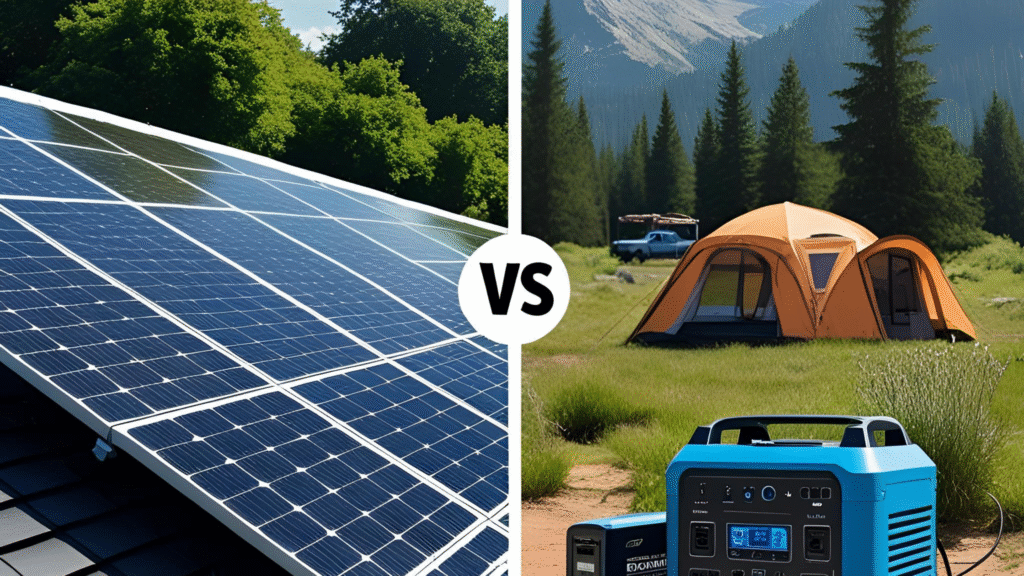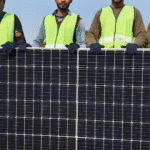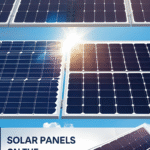Trying to choose between solar panels and solar generators?
You’re not alone.
Both promise energy independence and lower bills—but they serve different needs.
So which one actually saves you more money?
Let’s break it down by cost, power output, long-term value, and more.
What You’ll Learn
-
Differences between solar panels and solar generators
-
Upfront and long-term costs
-
Which setup provides more energy savings
-
Use-case comparisons: daily home use vs. emergency backup
-
How to choose based on your needs
-
Real data and examples
What Are Solar Panels?
Solar panels are installed systems that convert sunlight into electricity for your home.
They’re mounted on rooftops or the ground and connect to your main power supply.
Most home solar systems include:
-
Solar panels
-
Inverters
-
Mounting equipment
-
Wiring and connections
-
Optional battery storage
Once installed, they can power your entire home and offset your electricity bill.
What Are Solar Generators?
Solar generators are portable power stations that use solar panels to charge an internal battery.
They usually include:
-
Foldable or rigid solar panels
-
A battery pack
-
An inverter
-
Outlets (AC/DC/USB) for devices
Unlike full solar systems, they don’t connect to your home’s power grid.
They’re best used for:
-
Backup during outages
-
Camping or off-grid activities
-
Powering small appliances and electronics
Upfront Cost Comparison
Let’s talk money.
Solar Panels:
-
System size: 5kW to 10kW
-
Price range: $10,000 to $25,000 (before tax credits)
-
Installation included
-
Eligible for incentives and rebates
-
Payback period: 6–10 years
Solar Generators:
-
Capacity: 500Wh to 5000Wh
-
Price range: $300 to $4,000
-
Plug-and-play setup
-
No installation required
-
No federal tax credits
Long-Term Savings
This is where the gap widens.
Solar Panels:
-
Reduce or eliminate electric bills
-
Can save $1,000+ per year on utility costs
-
Net metering allows credit for extra energy
-
25-year lifespan or more
-
Adds value to your home
Solar Generators:
-
No impact on electric bill
-
Used occasionally
-
Needs frequent recharging or sun exposure
-
Battery degradation after 3–5 years
-
No resale value
Which one pays you back over time?
Only solar panels.
Use Case: Which One Fits Your Lifestyle?
Daily Home Use:
-
Go with solar panels
-
Power high-energy appliances: HVAC, fridge, washer, lights
-
Lower your grid dependence
-
Protect against rising electricity rates
Short-Term Backup:
-
Use a solar generator
-
Keep your phone, router, and lights running during outages
-
Avoid fuel costs of gas generators
-
Recharge using sunlight anywhere
Energy Output and Capacity
Let’s break this down with numbers.
Solar Panels:
-
A 6kW system can generate 24–30 kWh per day
-
That’s enough to run an average U.S. home
-
Can scale to match energy use
-
Works best with direct sun exposure
Solar Generators:
-
A 2000Wh generator can run a fridge for ~10 hours
-
Or power a laptop for several days
-
Charges slowly with limited panels
-
Not ideal for whole-house coverage
Hidden Costs to Watch
With Solar Panels:
-
Maintenance is minimal
-
Occasional inverter replacement ($1,000–$2,000 after 10+ years)
-
Battery storage (if used) adds cost but increases flexibility
With Solar Generators:
-
Battery replacements every few years
-
Slower recharge time during cloudy days
-
Often need additional panels for longer use
-
Not weatherproof without shelter
Which Option Has Better ROI?
If you:
-
Own your home
-
Want to reduce energy bills
-
Stay in one place long-term
Solar panels will give you a better return.
If you:
-
Rent
-
Travel often
-
Only need short-term power backup
A solar generator may fit better.
Real-World Example
One homeowner in Texas installed a 7.2kW solar panel system in 2022.
-
Installation cost: $19,800
-
Tax credit: $5,940
-
Net cost: $13,860
-
Electric bill savings: $120/month
-
Payback time: 9.6 years
Compare that to a user with a $2,000 solar generator:
-
Runs lights, modem, small fridge
-
Lasts 1–2 days between charges
-
No impact on monthly bills
Different tools for different goals.
What Should You Choose?
Ask yourself:
-
Do you want long-term savings or short-term backup?
-
How much energy do you use each day?
-
Do you want to power your entire home or just essentials?
-
Are you prepared for a permanent install or need something mobile?
-
Do you qualify for solar incentives?



